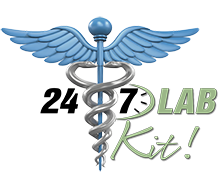What You Need To Know About Gonorrhea
Often known as “The Clap,” Gonorrhea is a common sexually transmitted disease (STD) that affects about 78 million people around the world each year. Though this STD can be treated, it is a serious condition that can lead to complications if ignored.
Procrastination only makes matters worse, so it’s essential to test for gonorrhea as soon as you suspect you might have contracted the disease.
What Is Gonorrhea?
Gonorrhea is caused by the bacterium called neisseria gonorrhoeae. It can affect both men and women in the genitals, rectum, and throat as a result of any form of unprotected sexual activity.
Gonorrhea is especially unique because it can be passed from mother to baby during pregnancy. It’s even possible to experience gonorrhea and chlamydia simultaneously.
A few symptoms make it clear that you have a gonorrhea infection:
- White, yellow, or green vaginal or urethral discharge that looks like pus
- Pain in the testicles or scrotum (for men) or pain during sex (for women)
- Painful or frequent urination
- Itching, bleeding, and pain when passing stools
- Swollen neck lymph nodes
- Eye pain and light sensitivity
- Red and swollen joints
How to Test for Gonorrhea
Testing for an STD doesn’t have to be an embarrassing or inconvenient process. It is actually possible to send your urine sample through the mail and have it tested in complete anonymity. Your results will be returned to you in a subtle manner so you are the only person to know your results. You no longer need to visit your doctor’s office to request a gonorrhea test!
The Best Gonorrhea Treatment
Treating gonorrhea is very simple when done quickly. An antibiotic shot and an oral antibiotic are both used to eliminate your infection. It is important to abstain from sexual intercourse until the completion of your treatment to prevent the spread of infection. If your first round of treatment doesn’t work, your doctor will recommend a second round after 7 days.





Comments are closed